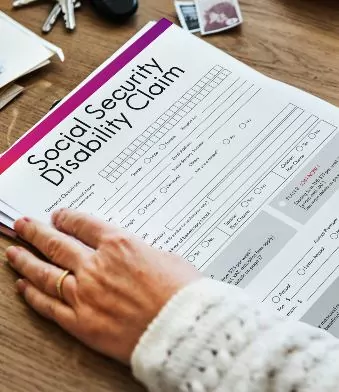
Understanding Meniere’s Disease – Your Rights in Australia
Accessing diagnoses, benefits, and treatment with the support of legal definitions and advocacy
Meniere’s disease (MD) causes episodes of vertigo, hearing loss, and tinnitus, which can seriously impact daily life. Navigating the Australian healthcare and social support systems to obtain the correct diagnosis, treatment, and disability support can also be challenging.
If you or someone you love has MD and is seeking disability benefits, medical tests, or insurance coverage, it is important to understand how Australia legally defines MD —and what steps you may need to access support.
Why Legal Recognition of Meniere’s Disease Matters
In 1995, the Australian federal government created a special task force of medical experts to develop a Statement of Principles (SoP) for MD. A SoP acts like a legal definition that helps determine who qualifies for medical benefits, disability pensions, and insurance claims. It also guides doctors in making diagnoses and recommending appropriate tests and treatments.
This legal framework is used by government agencies, veterans’ services, and private insurers to evaluate claims related to MD.
What Is Meniere’s Disease Under Australian Law?
MD is officially defined in legal and medical terms as:
- A condition that affects both hearing and balance organs (the cochlea and vestibular system) on the same side of the head.
- Symptoms must include episodic vertigo, sensorineural hearing loss, and/or tinnitus, all occurring on one side.
- The condition includes primary endolymphatic hydrops (fluid imbalance in the inner ear) but excludes vestibular migraine.
This definition appears in multiple legal documents, including:
- Statement of Principles No. 69 of 2024 of the Veterans’ Entitlements Act 1986
- Social Security Act 1991 (s.94)
Read the official definition (PDF)
Diagnosing Meniere’s Disease – not a single condition: Subtypes and Testing
MD symptoms do not all come from the same source. Researchers have identified subtypes, and matching the proper treatment often depends on knowing what kind(s) you have. These subtypes are linked to different causes, such as autoimmune conditions, infection, or prior ear injuries, to name a few.
Resources and studies on subtyping include:
- Meniere’s disease: new guidelines, subtypes, imaging, and more (Justin Hoskin, 2022)
- Clinical Subtyping of Meniere’s Disease (Phillips et al., 2018)
- Future Directions in Meniere Diagnosis and Treatment (Zhang et al., 2022)
- A Modern Framework for Treating Meniere’s Disease (Chari et al., 2025)
Doctors and specialists can use this information to tailor testing and treatment plans.
Legal Factors That Support a Claim
Accessing disability benefits or support through Centrelink or other agencies may require proof that one or more of the following conditions existed before your diagnosis or worsening of MD. This list is not exhaustive:
- A moderate to severe traumatic brain injury
- A diagnosis of otosyphilis in the affected ear
- An autoimmune condition like rheumatoid arthritis or lupus
- Past inner or middle ear surgery
- Use of medications like hydroxychloroquine or certain antibiotics
- Lack of access to appropriate medical care before your condition worsened
These factors help build a “reasonable hypothesis” that your MD is linked to certain life events or conditions, which is often enough for administrative approval—you don’t need to prove MD beyond a reasonable doubt unless your claim is denied.
Claiming Disability Support: What You Need to Know
Under Section 94 of the Social Security Act 1991, Australians with MD may qualify for the Disability Support Pension—but it’s not a self-assessment process. You’ll need:
- A formal medical diagnosis
- Supporting evidence from your healthcare providers
- In some cases, representation if your claim is denied
If your claim is refused, you can appeal through the Administrative Appeals Tribunal (AAT). You’re allowed to be represented by a family member, an expert advocate, or a medico-legal agent to present your case.
Costs and Legal Representation
While you can request reimbursement for the costs of agent-legal representation during a Tribunal review, costs are not automatically covered and are at the discretion of the Tribunal.
MD and the Hearing Guidelines
The Social Security (Work-Related Impairment) Tables are used to evaluate eligibility for disability pensions, including specific guidelines for hearing and vestibular function under Table 11. Meniere’s disease is explicitly mentioned here: See the Guidelines
Important Notes
- The COVID-19 vaccine injury claims program, including those related to vestibular or hearing symptoms from Capillary Leak Syndrome, is now closed.
- A significant gap: Australia still lacks a peak body dedicated to people with balance and hearing disorders, such as those with MD. Advocacy is critical for improving access to care, support, and research.
Final Thoughts
MD is now widely recognized in Australian law as a disabling condition. Thanks to decades of medical research and legal advocacy, Australians with MD have pathways to receive diagnoses, treatment, testing, and benefits, but it’s not always straightforward.
If you are navigating this system, you are not alone. Seek medical advice, collect documentation, and consider advocacy support if needed—especially if your claim is denied.
Source: Stephen Spring, Meniere’s Advocate and authorised by NSW Supreme Court to practice law as an agent on 16 November 2007.
